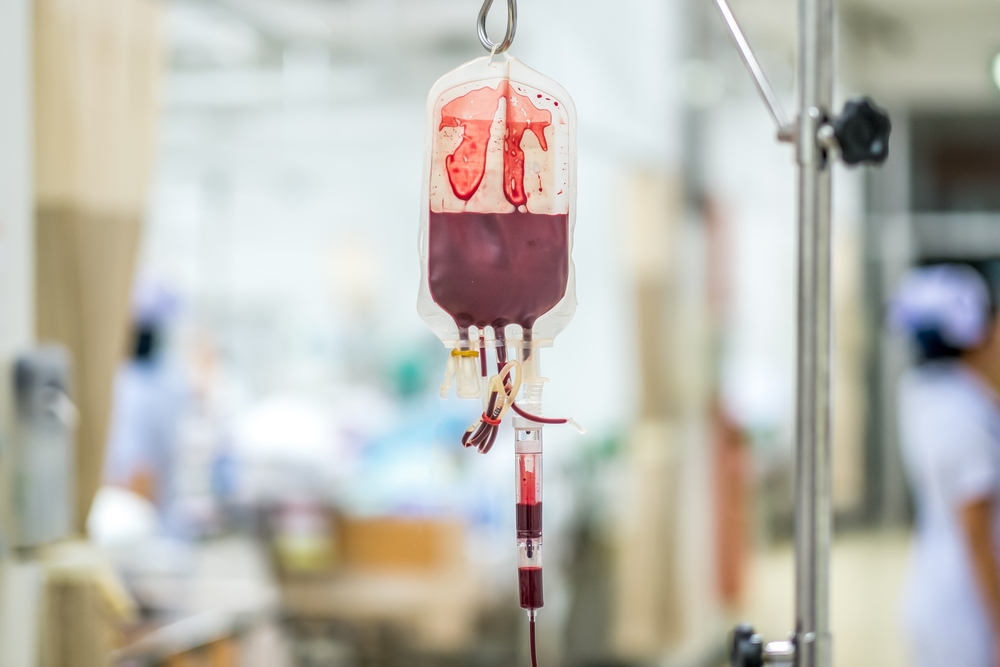Florida Attorneys Dedicated to Assisting Clients Harmed by Unsafe Blood.
Blood transfusions are often a necessary and life-saving element of the practice of medicine, especially in surgical cases or other situations where a patient has lost blood through injuries sustained in an accident. Detailed processes and procedures exist to protect patients from receipt of unsafe blood and blood products, but, unfortunately, hospitals, clinics, doctors, nurses and other medical professionals may fail to adhere to those standards and cause serious harm as a result. When this is the case, and you suffer additional harm because of the receipt of unsafe blood or unsafe blood administration practices, you may be entitled to recover financial compensation to hold the responsible parties accountable for their negligence. Our Florida unsafe blood injury lawyers can help you today.
Claims for harm caused by unsafe blood or through the blood transfusion process can be complicated, as can any other medical malpractice case. At Gonzalez & Cartwright, P.A., we have dedicated our careers to protecting the Florida community from injuries caused by third-party negligence, including in complex medical malpractice cases. We have developed the knowledge and experience necessary to help our clients recover from the often-severe harm that can be caused by unsafe blood products, and are ready to put our skills to work in recovering compensation in your case.
Receipt of Unsafe Blood Causes Significant Harm
Blood transfusions are relatively common in medical practice. Despite this, errors can and do occur and, in some cases, those errors rise to the level of actionable medical malpractice when they cause harm to a patient. Types of errors in blood administration include situations involving:
- Unsafe blood. Even though blood that is donated must be screened for diseases that can be transmitted through blood, errors in this screening process (or failing to properly screen blood at all) can result in situations where a patient receives unsafe blood that is infected, thereby transmitting that infection to a patient. HIV and hepatitis are two examples of diseases that can be transmitted through unsafe blood received by a patient.
- Wrong blood type. A patient must receive blood that is compatible with his or her own blood type in order for the blood to enter the body safely. Receiving blood that is a different and non-compatible blood type can cause significant complications and harm to the patient.
- Improper administration of blood. When a doctor or medical professional improperly administer the blood—by using the wrong size needle or negligently administering too much blood to a patient, significant damage can result.
Improper blood storage or mislabeling of the blood can also cause a patient to receive unsafe blood through a transfusion. In addition to transmitting infections through unsafe blood, when blood is unsafe for the patient, significant additional complications can arise, including:
- Anaphylactic shock,
- Immune reactions,
- Clotting problems,
- Acute immune hemolytic reaction, where the patient’s body attacks red blood cells in the transfused blood,
- Fever, nausea and chest pain,
- Allergic reactions,
- Organ damage.
Experienced Lawyers Fight to Hold Negligent Medical Professionals Accountable
Recovering compensation for harm caused by unsafe blood products in Florida requires more than simply showing that receiving the blood caused you some sort of harm. We must also prove that the doctor, medical facility or medical professional committed malpractice in administering the blood. Medical malpractice cases in Florida require that we first satisfy certain evidentiary standards and take specified procedural actions in making a claim for compensation, including:
- Establishing that your doctor, hospital or a medical team member failed to adhere to the relevant standard of care, which requires examining how a similarly-situated medical professional would have acted under the circumstances,
- Proving that the deviation from the standard of care caused you harm,
- Obtaining the opinion of a respected medical expert in the field testifying to the fact that a breach of professional duty did occur and cause you harm
- Providing notice to the relevant negligent party within certain specified time frames.
Schedule a Free Initial Consultation to Discuss Your Case with a Lawyer Experienced in Handling Unsafe Blood Injury Cases
When you choose Gonzalez & Cartwright to represent your legal interests after suffering harm through the receipt of unsafe blood, you can rest assured that our medical malpractice lawyers will leave no stone unturned in exploring every possible avenue for recovering compensation in your case. Your first consultation is entirely free of charge, so call our Florida unsafe blood injury lawyers today, or fill out this online contact form, to see how we can help in your case.
Frequently Asked Questions About Unsafe Blood Claims in Florida
Not necessarily. In some cases, the blood you received may have been contaminated or otherwise made unsafe because of the improper actions of the hospital or medical facility itself—in which case the doctor or nurse may not have had specific knowledge of the unsafe nature of the blood, especially if the medical professional played no role in the blood storage or even in obtaining the donated blood in the first place. In those cases, we would investigate to hold the hospital or facility responsible for their negligence in providing unsafe blood to patients.
We will fight to make sure you are compensated for all of your medical expenses, including those related to the treatment of any condition arising from your receipt of the unsafe blood. We can also recover compensation for lost wages, lost earning potential, pain and suffering and any rehabilitative care or in-home care made necessary by the harm you have suffered. If your loved one died because of the receipt of unsafe blood, we can recover compensation for funeral expenses and loss of financial support or loss of consortium, depending upon your relationship to the victim.
